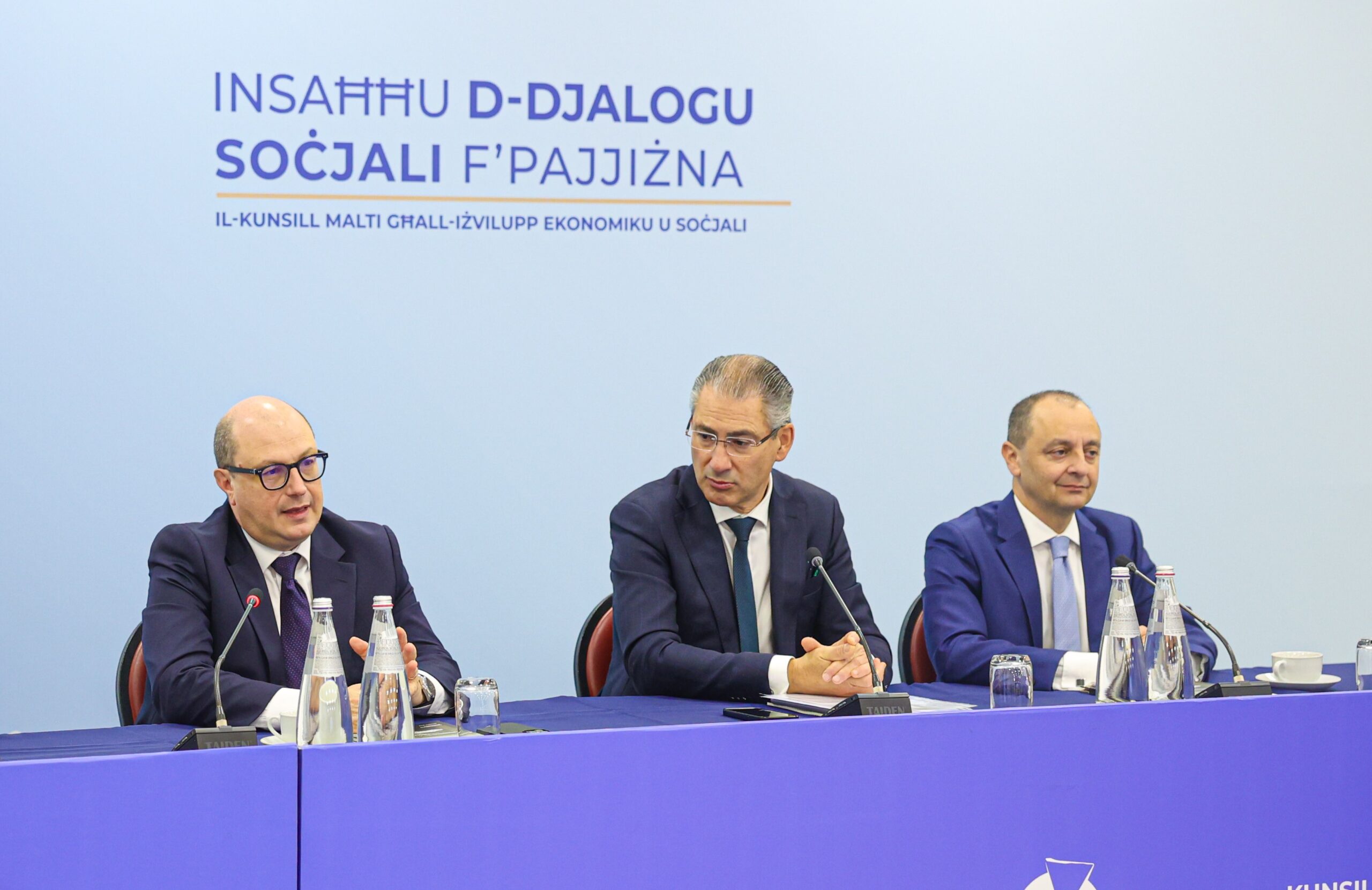During a meeting of the Malta Council for Economic and Social Development (MCESD), social partners met with Minister for Lands and the Implementation of the Electoral Programme, Stefan Zrinzo Azzopardi, Parliamentary Secretary for Social Dialogue, Andy Ellul, and MCESD Chairperson, David Xuereb, to discuss the National Strategy for Land Registration System Reform and its significance.
A representative from the Land Registration Agency presented the 18 recommendations outlined in a document currently under public consultation. Among the most crucial recommendations is the need to update the law that established the Land Registry, with the objective of achieving full land registration coverage across Malta within ten years.
Additionally, the document proposes improvements to the quality and certainty of property title certificates, as well as measures to ensure clearer definition of property boundaries.
Another key recommendation is the creation of a mediation and arbitration framework, providing more efficient solutions for property disputes.
Minister Stefan Zrinzo Azzopardi explained that the reform aims to make Malta a fully registered land zone by 2035. He stressed the importance of an updated land registration system that meets sectoral needs while improving services for clients and professionals involved.
The Minister stated that this initiative is just the first step in raising awareness of the need for a transparent and modern Land Registry. The consultation process seeks to gather broad consensus to ensure the system’s effectiveness and success.
Parliamentary Secretary Andy Ellul underscored MCESD’s critical role in facilitating dialogue on key government reforms and policy-making. He pointed out that, like other reforms recently discussed at MCESD, this land registration overhaul is necessary to enhance security and trust in the property market.
MCESD Chairperson David Xuereb emphasised the importance of this reform, noting that it is not just about property ownership clarity but also about creating a more transparent and efficient system that strengthens trust in the property market.
Social partners welcomed the meeting, as it allowed them to share their thoughts, considerations, and suggestions directly with the Minister. Their input is being seriously considered to ensure that the final law accurately reflects the country’s and society’s needs.
The social partners also highlighted the importance of digitalisation and data security, which are crucial elements for a modern land registration system. The timeline for implementing the reform was also discussed to ensure a smooth transition that aligns with present-day realities.
The public consultation will remain open until 28th February. The Ministry, in a statement, encouraged all stakeholders and the general public to submit formal feedback on the strategy.
The consultation document, which provides detailed context and outlines the proposed recommendations, can be accessed here.
Malta International Airport closes in on one million passengers in June
Meanwhile, aircraft traffic movement rose by 4.5 per cent year on year
Malta’s population hits 574,250 in 2024, up by 1.9%
Total net migration was at 10,614 persons, the vast majority being non-EU citizens
Service excellence as a cornerstone of Avenue 77 workspace experience
Providing excellent service is a foundational aspect of what makes working at Avenue 77 a great experience






